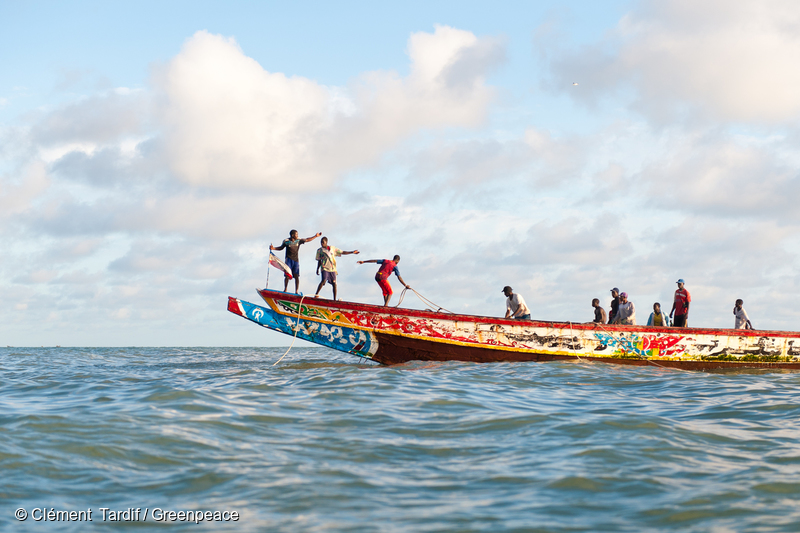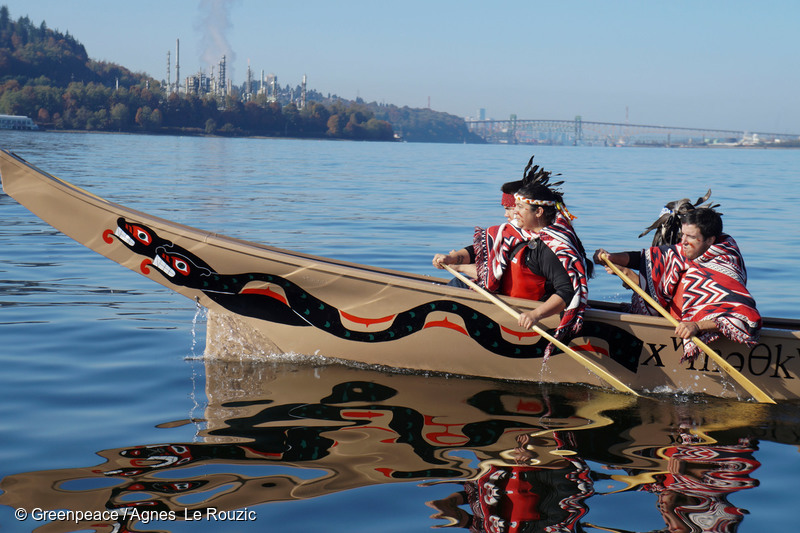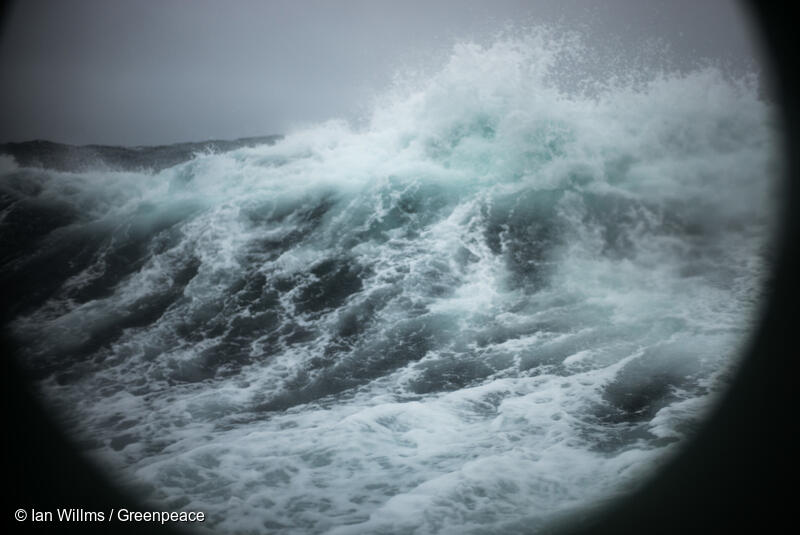When you read the phrase ‘ocean conservation’ what images come up in your mind? A mighty blue whale? Cute penguins from our recent Antarctica trip? Maybe some fish swimming in a colourful coral reef?
Animals like whales, sharks and turtles have been icons of the mainstream ocean protection movement for decades. After all, they live in the ocean we’re trying to protect and are facing grave threats to the future of their species. And, they just happen to be amazing!
However, there’s another species that relies on healthy oceans, but isn’t always mentioned in conversations around ocean conservation and that’s… humans!

How humans depend on the ocean
More than 3 billion people rely on the ocean for their livelihoods, the vast majority of which are in the Global South. The ocean provides coastal communities with jobs in small-scale fishing, a practice that has been passed down through generations, as well as newer industries, like tourism. The oceans also keep us fed. Seafood is a key part of billions of people’s diets, and many people rely on it to survive.

Communities all over the world have deep cultural and spiritual connections to the ocean, and many Indigenous Peoples in particular have put the sea at the centre of community life for centuries. Indigenous People occupy unceded territory along 3 coastlines in so-called Canada, depending on, and stewarding, the unique ecosystems and rainbow of life. But the interruption of Indigenous life by colonial and industrial activities has disrupted the natural ocean-human connection.
How humans are impacting the oceans
While some people are working hard to steward and protect our oceans, members of the same human species are exploiting our oceans for profit, which is threatening the livelihoods of other people globally.
Destructive industries like industrial fishing are emptying our oceans of life, including in international waters which have very few laws to stop this activity. Fish don’t respect borders. The fishing free-for-all in international waters is having a devastating impact on coastal communities. The UN estimates that around 60 million people are employed worldwide in fishing and aquaculture. Most are in the Global South, and are small-scale, artisanal fishers and aquaculturalists. Often, there aren’t enough fish being caught to make a living or feed families, so people have to fish for more days of the week.
For example, we spoke to Oke, a fisherman in Nigeria who said, “Our children are not able to frequently go to school anymore. It has affected our wives’ being able to sell their wares, the cost of living has skyrocketed.”
Hear more from Oke in this video:
This is just one example – this is happening to coastal communities all over the world, including here in co-called Canada where numerous local stocks have plummeted as industrial fleets plunder the seas beyond the horizon.
The industrial fishing companies don’t just harm coastal communities – their own workers are suffering too. A recent article revealed that migrants from the Philippines, Indonesia, Ghana, Sri Lanka and India working on boats in UK waters reported awful conditions, with 20 hour work shifts as well as violence and racism.
We all need healthy oceans
From coastal communities to migrant workers on ships to everyone who relies on a stable climate, we all lose out when the oceans are being exploited. Even if you live thousands of miles from the oceans, they’re still crucial to your future.
We know that healthy oceans are key to tackling climate change. Our oceans have absorbed 20-30% of recent emissions, buying us more time to avoid the worst of climate breakdown. But unless we protect the habitats and systems that keep ocean life healthy, they’ll stop being able to soak up our emissions, and climate change will accelerate.
That’s why World Oceans Day is about all beings—large and small, marine and terrestrial, plant and animal, ice-dependent or deep in the desert. Humans often think of the oceans as “over there,” but the ways they keep our blue planet in balance are everywhere. They desperately need our collective help. In our current planetary state, it’s never been more true that failing to protect the oceans means failing to protect ourselves.
This #WorldOceansDay please take a moment to show your support for a strong Global Ocean Treaty that is meant to wrap negotiations at the UN this August. It would help keep parts of the high seas off limits to destructive industries, help create safe havens to allow marine life to recover and build resilience against changing climate related conditions, and help ensure food security for people around the world. Sign the petition to tell world leaders to act now to protect our oceans and people. Already signed? Share the petition with friends and family as your ultimate World Oceans Day act of love. <3


Discussion
"Cruise ships are a catastrophe for the environment. These monster ocean-going vessels create massive amounts of air and water pollution." This is a quote from a recent post in my blog (etcbilly.ca) describing that cruise ships are very bad for the environment. I invite your readers to have a look at my blog where I outline my thoughts on topics from the climate crisis to social norms.